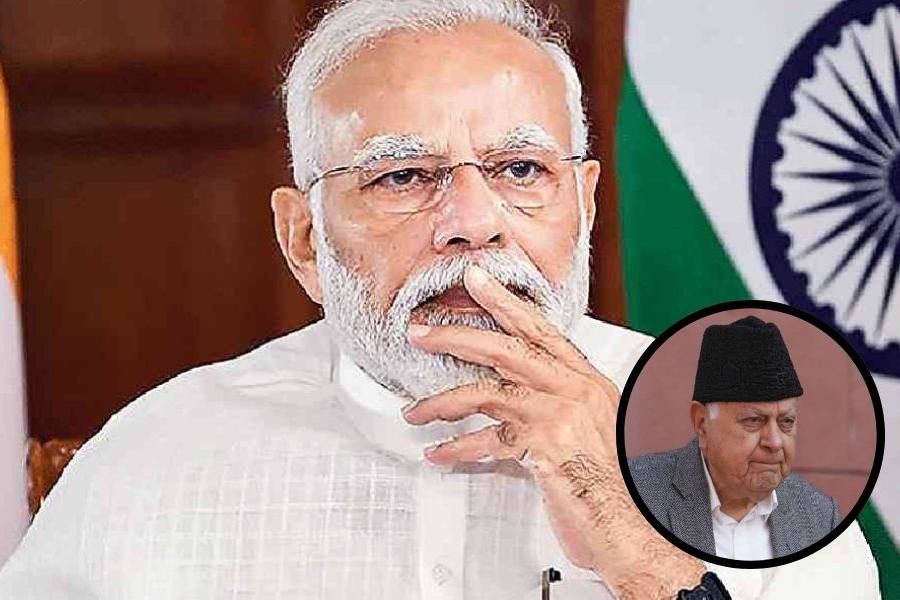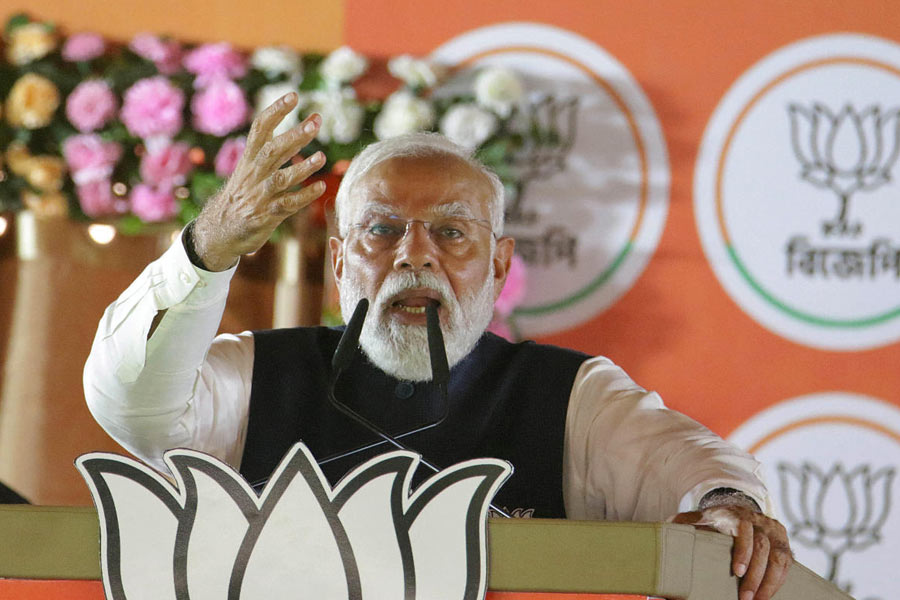The Modi government has an ambitious plan to create a $5-trillion economy in the next five years — but all data points are heavily stacked against it. The economy is floundering and the Reserve Bank of India has already trimmed its growth forecast to 6.9 per cent this year. The decadal average for real GDP growth is 7 per cent. That isn’t good enough to reach what Professor Amiya Bagchi believes is a “pipedream”. In conversation with Subhoranjan Dasgupta, Dr Bagchi says the Modi government would do better to focus on the real issues: stimulate the economy, boost spending and deal with a ballooning wage and job crisis.
The BJP government is claiming that before 2025, India’s GDP will reach $5trillion. Is this a pipedream or does the prophecy have some validity?
It is a pure and simple pipedream. We do not have any data or research to support this claim. Not only I but also economists close to the BJP have expressed their reservations on this issue. The growth rate is only 6 percent at present, but to reach the $5-trillion figure we need to have a continuous growth rate of 8-9 per cent, if not more. Our economy is facing a grave crisis. Hence, we shall not be able to reach 8-9 per cent growth in the coming years. Consequently, it will remain a pipedream.
On the one hand, we have this ambitious figure ($5 trillion) and, on the other, farmers are committing suicide every day. Can the BJP government resolve this blatant contradiction?
Till now at least 2,50,000 farmers have committed suicide — in Maharashtra, Gujarat, Rajasthan, Telangana, Haryana and Andhra Pradesh. Such a massive tragedy has failed to rouse or activate the conscience or consciousness of the powers that be. The reason for this is simple. The present government cares two figs for the farmers. They are determined to assist only the corporate sector, including corporate giants such as the Ambanis and the Adanis. So, farmers will continue to languish.
To avert a greater crisis, the BJP-led government, in the recent past, thought of taking loans in dollars from the international market? Do you support this strategy?
No, I am not in favour of taking loans from foreign agencies. If the government decides to take loans in dollars, it has to accept the changing value or worth of dollars and this fluctuation will considerably increase the amount of repayment. This is a step fraught with risk and uncertainty, and we should avoid it at all cost.
What is particularly wrong with the government’s policy and planning?
The present government has miserably failed to stimulate the domestic economy. It has spent less and less as a percentage of GDP on public education, healthcare and infrastructure and this sad performance is a direct outcome of its erroneous planning and policy. At the same time, it has encouraged a spate of privatisation, and this strategy has led to the reduction of employees and workers. For example, they are keen to privatise Bengal Chemicals, which is doing very well and earning profits. In short, indiscriminate privatisation is no panacea.
The condition of the job market will worsen because the two crucial sectors — the auto industry and the real estate cum construction industry — are facing a severe crisis. In fact, the corporate sector wants emergency financial support such as cheap bank loans in this hour of crisis. But the moot point is that this step, if at all it is taken, will not add in any way to the purchasing power of the people. Instead of granting money to the critical production sectors, the government should try to empower the people, with the help of pro-people, economic policies. Only massive social spending can turn the tide.
Already, the Mahindras and Tata Motors have cut down their production, which means recession is staring at us in the face. Please, don’t forget the impending dismissal of almost 3 lakh employees in the railway sector. This is an ominous signal.
How can we combat this recession? By removing the abysmal inequality in our country. Even bank loans, as such, cannot do the trick, as the followers of cheap money found out during the Great Depression.
You have never minced words while giving a prescription. What are the three essential steps that the government should take to battle the crisis?
The three most important steps are: (i) Tax the rich and the super rich effectively and convincingly; (ii) Send the big bank defaulters to jail; (iii) Spend lavishly on infrastructure, health care and public education. In other words, create strong and tangible assets.
We cannot afford to wait and watch because we are already in a state of deep recession. Sixteen per cent of the youth are unemployed. Between 2015 and 2018, absolute employment shrank 19 million and the decline has continued since then.
To provide other unhappy figures — factory output shrank to a four month low; eleven million jobs were lost in 2018 and the rural-agricultural sector has suffered most; growth in the manufacturing sector has also slowed down to 1.2 per cent against 6.9 per cent a year ago.
We simply cannot afford to ignore the basic facts and figures and the existential crisis of our people. We have to take the right decisions and implement the right policies without any further delay.










